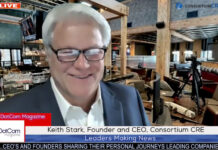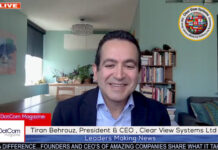Eyewear is one of the world’s biggest industries for a reason. Thanks to rising public awareness of eye health and the stylish appearance of modern optical frames, more people want to buy glasses and sunglasses than ever before.
That demand is expected to skyrocket even further since eyewear brands are no strangers to adopting new technologies. In fact, this Global Information market report finds that technological advancements will be one of the biggest factors helping the industry reach a value of $287.63 billion by 2033.
This prediction is supported by how the world’s biggest eyewear companies use these technologies in the first place. Because brands leverage them as soon as they design and produce eyewear, more appealing products are hitting the shelves, helping drive the entire industry forward.
To illustrate just how much that’s changing the game, here’s a quick rundown of the three biggest technologies revolutionizing eyewear production and design.
3D printing
With a 2024 Forbes piece revealing that 81% of consumers prefer personalization, it’s clear why eyewear companies strive to produce frames meeting that expectation—and they’ve found a solution with 3D printing. This technology makes it easier to produce customer-provided designs, resulting in fully customized eyewear frames.
Brands often pair 3D printing with other digital tools to create better-fitting products. Before purchasing glasses from the Yuniku Design Center, for example, customers need to get their faces scanned so the center can size the specs using accurate measurements. Buyers can also try their custom frames on virtually before they’re produced.
AI integration
Leading DotCom Magazine thought leader Torry Mastery previously wrote about AI in eyewear, noting how it can facilitate personalized frame recommendations in online shopping, enhance the effectiveness of vision tests, and generate data-driven marketing insights for better decision-making. However, AI arguably offers the most benefits in eyewear production and design. For instance, it can similarly provide the information needed to streamline eyewear manufacturing and minimize waste. More significantly, though, it’s now being integrated into the design of truly smart glasses.
That’s particularly apparent in how AI is being used to elevate Ray-Ban sunglasses. The UV-blocking and polarized filters found in stylish frames like the Aviator, Wayfarer, and Clubmaster are what made this brand a household name—and with AI, the resulting Ray-Ban Meta smart glasses are set to further cement its position as an eyewear industry leader. Here, it’s cleverly used to power features like voice assistance, media capture, hands-free communication, and even live image recognition and translation, changing the game for smart eyewear by expanding its use cases beyond the industrial and toward the everyday.
Advanced recycling
As the climate crisis deepens, consumer demand for sustainable brands continues to grow. Though both 3D printing and AI can reduce waste, shorten production times, and use less energy, many eyewear brands wanted to go even further by taking advantage of more eco-friendly technologies. Key among them is advanced or chemical recycling. This technology takes recycling as far as it can go by breaking down materials into their original chemical components. That includes materials previously thought to be impossible to recycle—which is why brands use it to maximize the amount of waste they can reuse and prevent from going to landfills.
That’s best illustrated by WITHOUT sunglasses, which boast frames recycled from potato chip bags. This kind of packaging is made from multi-layered plastic, making them unrecyclable through conventional methods. With advanced recycling, however, WITHOUT can turn them into sunglasses frames that don’t compromise on quality. They’re lightweight, durable, and can maintain their integrity no matter how many times they’re recycled—clearly showcasing how this technology can completely transform eyewear production and design as consumers become more eco-minded.

















